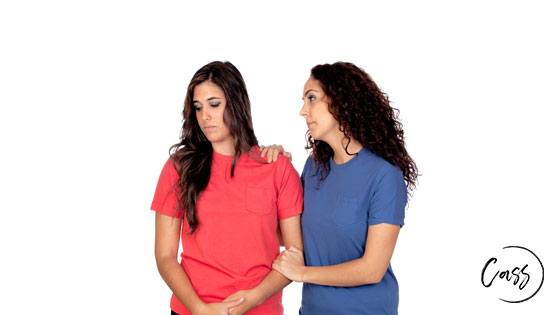You’ve no doubt heard the saying that holding onto anger is like drinking poison and expecting the other person to die, which basically means that when you carry around resentments and grudges, the only person suffering is you. Studies have shown that when people focus on someone who has hurt or mistreated them, their mood spirals downward and they experience all the physiological symptoms of stress including higher blood pressure, elevated heart rate, sweating and tension in their body. Holding grudges is really bad for you.
But letting go of those old grudges is sometimes easier said than done. In fact, it can sometimes feel impossible. When we see stories in the media about people extending forgiveness to the person who killed their child, for example, it almost beggars belief. Where do people find the capacity for forgiveness when they’ve lost so much? It might be that they practice forgiveness not for the person who has wronged them, but for themselves – because sometimes forgiveness is the very thing that releases you from your pain and allows you to move forward in your own life with peace and positivity.
Forgiveness means reducing (or eliminating) the drive for revenge or retaliation and if possible, replacing it with thoughts that are based on more empathy or goodwill. Maybe ‘letting go’ is a more effective description and if you have trouble letting go, it might help to remember these key points:
1. Forgiveness doesn’t require reconciliation
Forgiveness does not have to involve reconnecting with the person or having any relationship with them at all. In fact, forgiveness doesn’t even require you to communicate with the person and they need never know of your decision to let go of your anger.
2. Forgiveness is not condoning the other person’s behaviour
Another misconception is that extending forgiveness to someone means you condone or pardon their actions. It might feel as if you are letting the other person off the hook but in fact, you’re letting yourself no longer be hooked into feelings of bitterness and hostility.
3. Forgiveness isn’t weak
Probably one of the biggest hurdles to overcome is the idea that forgiveness is weak or foolish. In fact, it’s people who are emotionally stable who have been shown to be more likely to practice forgiveness. It can help to remember that offering forgiveness has nothing to do with what’s ‘fair’. Focusing on fairness and wanting to maintain the upper hand can keep you unnecessarily stuck and unable to move on.
Practising forgiveness
When you choose to forgive someone for their wrongdoing, you are making a conscious decision to let go of the pain you are carrying. Psychology professor and leading forgiveness researcher, Everett Worthington has developed a five step process he called REACH forgiveness, which has been found to be an effective tool for people wanting to forgive. I’ve outlined his process below so that you can decide if it’s something you’d be interested in exploring further. (Note: Professor Worthington’s own mother was murdered and both he and his siblings forgave her murderer within a very short space of time so this is not just academic theory to him, but a lived experience).
R – Recall the hurt.
The first step is acknowledging that you have been hurt as objectively as possible. It’s dropping the defensiveness and the snark and facing up to the fact that this situation occurred and the impact it had on you.
E – Empathy
Empathy involves seeing the situation from the other person’s perspective. You may not agree with it, but the more you can try to see their point of view, the more likely you are to reduce feelings of anger and make space for compassion. We all know that it’s hurt people who hurt other people and sometimes it can help to remember that anyone who is driven to cause harm to others must be carrying a lot of emotional pain within themselves.
A – Altruistic gift.
Offering forgiveness is an act of altruism because it doesn’t require the other person to do anything for you. It’s recognising that you have been forgiven for transgressions in the past and you have the capacity to do the same for someone else.
C – Commit.
Make a commitment to your decision to let go and move on. A commitment has staying power. It means every time you revert to old resentments, you remind yourself of your decision and don’t question it.
H – Hold onto forgiveness.
When you notice those old stories or resentments coming up again, do your best to hold onto forgiveness and not be derailed again by hostility.
Ultimately, forgiveness is a gift to another person as well as an act of kindness to yourself, and a small contribution to living in a more understanding and compassionate world.
Read next article: Why feeling bad isn’t all bad news?
